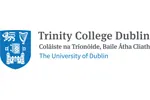About Literary Translation, MPhil - at Trinity College Dublin
There is a widespread interest, in Europe and all over the English-speaking world, in literary translation, as a form of literary study and as a discipline which extends the reading and writing skills gained in an Arts degree. Trinity College has the opportunity to build on its large and successful language programs, in creating a program specifically designed for the production and study of literary translations. It is for these reasons that Trinity College, Dublin University, is now initiating a new M. Phil. in Literary Translation, which will begin in Autumn of 2004.
A graduate of the course will be qualified to work as a literary translator. However, a graduate of this course would also be well equipped to undertake cultural, academic or philosophical translation as well as literary translation, and for employment in any area demanding a high level of intercultural awareness, as well as excellent writing and analytical skills. Our aim is to teach translation as an art, and to form professionals who will have learned to work in an ethos of mutual intellectual and linguistic exchange.
The M Phil will combine a core, which addresses theoretical, linguistic and practical issues common to all or most translation situations, with specialised options which are specific to countries and periods, as in the structure detailed below. Options might include courses on ancient texts, on the classic novel, and on translating contemporary literature, from a variety of angles, including the practical issues of translation and the comparative approach. Students might alternatively wish to take advanced undergraduate options in those language Departments which are working with the program, at this point, this includes all the modern Continental language Departments, the School of Classics, and the CLCS.
The course:This course runs from October to the following September.Your MPhil course consists of course work assessed by essay, of translation work, options and a dissertation on a translation-related topic. There are core elements (common to everyone) and options (mostly language specific). Some of these courses run throughout the year, and others for a part thereof only. For some courses, students are assigned a personal supervisor to guide and advise them in their work.
Core elements:1) A student seminar to which students bring their own translation (normally into English) for debate and discussion. Runs throughout the year, 2 hours per week. At the end of the year, students are requested to submit a portfolio of translations (Click here for details). This work is undertaken in conjunction with a tutor from the language of the student's choice, and counts for 30% of the final assessment. Although there is compensation between the different component parts of the course, students must achieve a pass on the submitted translation component, in order to pass overall. Coordinator: David Parris.
Click here for more details.
2) Texts and translations, a discussion seminar of translation practice. Runs throughout the year, 2 hours per week. Coordinators: Susana Bayo/Ciaran Cosgrove/guest translator. This course is not separately assessed but feeds into preparation for the portfolio and the dissertation. This course is followed in the second term by seminars with visiting translators
3) Theory and history of translation. A course on the theory of translation taught by a variety of colleagues. Runs for the first (Michaelmas) term, 2 hours per week. Assessed by essay (students either do an essay in theory and history of translation OR cultural theory 10%). Coordinator: John Murray.
4) Cultural theory, runs for the second (Hilary) term, 4 hours per week. Assessed by essay (students either do an essay in Theory and practice of translation OR Cultural theory 10%). Coordinator: Antony Tatlow.
5) A dissertation of up to 20,000 words on a translation-related topic (which may be an annoted translation), to be submitted at the end of the academic year (September following admission: 30%). In essence, the period from the end of the second (Hilary) term until the end of this course is mainly devoted to work on the dissertation. It is at this stage students who so wish may seek to spend time in a partner institution. Students work under the guidance of a dissertation supervisor. In the case of an annotated translation the commentary should contain a substantial theoretical component. The length of the translation and commentary should be agreed with the supervisor.
Non-core elements:
6) Students select options in the language(s) of their choice, either in literature or language, assessed by essay (30%) . Students are required to attend either 2 one-term options or 1 two-term options. Availability of options is subject to staffing.


